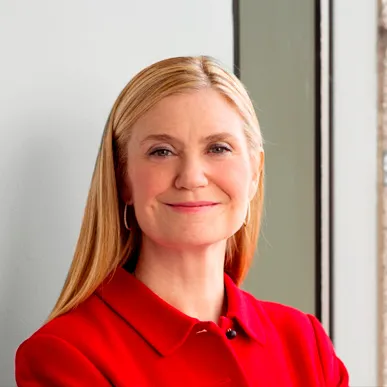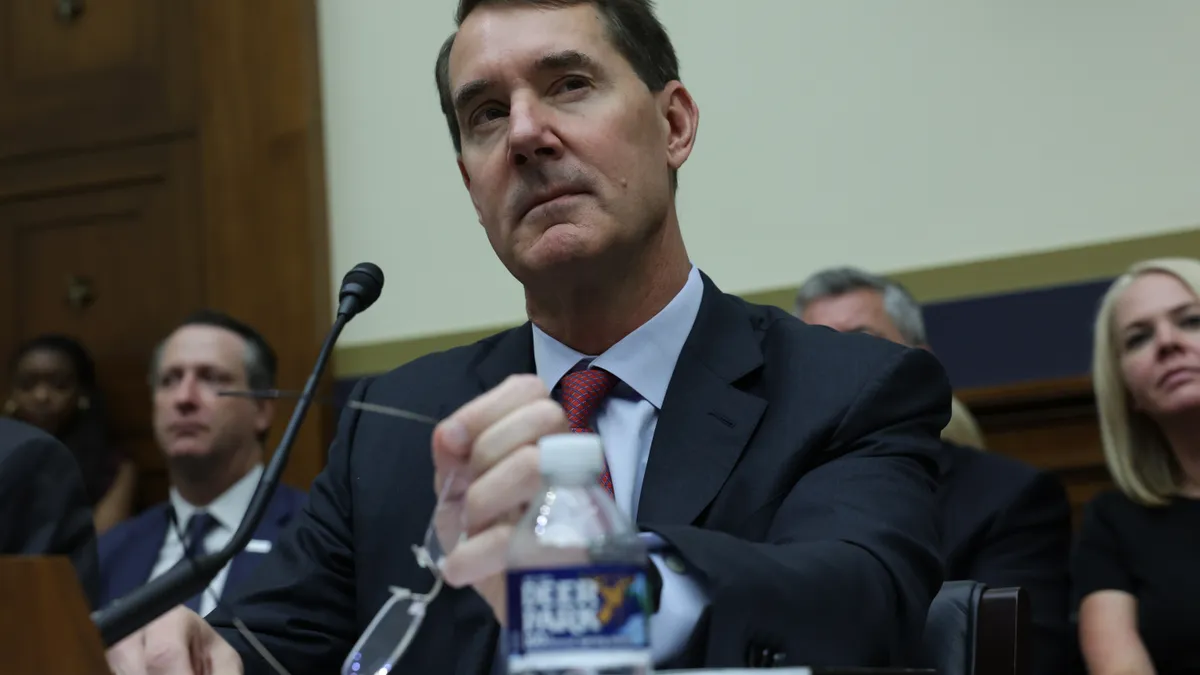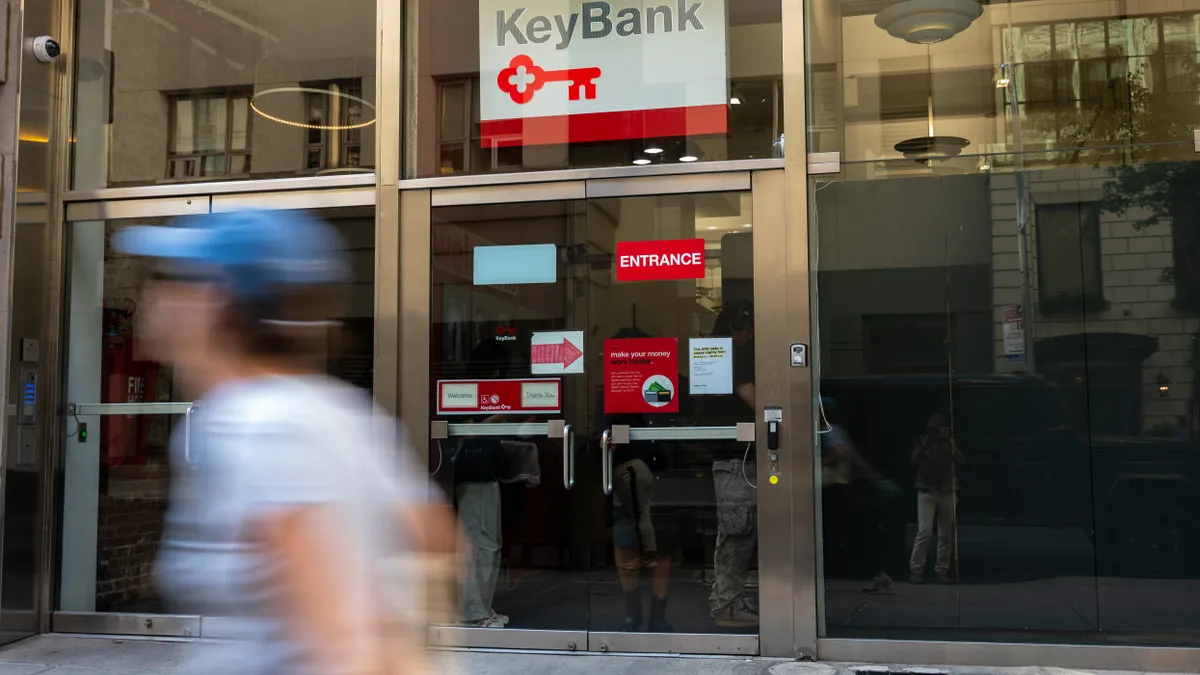Chief on Marianne Lake’s list of regulatory concerns: when “the playing field isn't even,” and where “as a result of regulation or legislation, effectively, winners and losers are being picked.”
During a December investor conference appearance, JPMorgan Chase’s CEO of consumer and community banking named the Credit Card Competition Act, the Consumer Financial Protection Bureau’s open banking rule and the Federal Reserve’s proposal to reduce the cap on debit card interchange fees as regulation or legislation that concerns her “not only in principle,” but “because they are making the playing field unlevel in favor of three-party networks or merchants and against customers.”
One of the top contenders to replace Jamie Dimon at the helm of the nation’s largest bank, Lake said last month she expects “meaningful policy change” once the Trump administration kicks off a second term.

“We're all expecting there will be some immediate leadership changes at several, if not many or all of the agencies,” Lake said Dec. 10 at an annual Goldman Sachs financial services conference. “That will have an impact on the path of regulation for financial institutions, which I think would be net positive.”
As far as the future of regulators’ capital requirements proposal, “most people are more optimistic that there'll be a more capital-neutral type outcome to that,” Lake said, although that wouldn’t “immediately materially” change how executives run JPMorgan Chase.
A change in leadership at the CFPB “should allow the opportunity to re-review the agenda, to re-review the merits of the litigation docket,” which might lead to changes, she said. The CFPB hit JPMorgan, Bank of America, Wells Fargo and Early Warning Services with a lawsuit over Zelle, contending the banks didn’t go far enough to protect consumers in creating the peer-to-peer payments platform, then abandoned fraud victims.
Still, “all of the rules matter for different reasons,” Lake said last month, before the lawsuit’s filing. “And for some of them, there are constituents on the other side of our arguments. And so, it is not obvious that everything is going to go away.”
“We're going to prepare for the fact that some of those things could land,” Lake said, without elaborating on what those are, adding that the company will be patient.
Consumer growth
JPMorgan expects to spend about $95 billion this year as it pursues growth opportunities, Lake said. In the consumer unit, that includes chasing new credit card and bank account customers, and opening new branches.
The bank has grown consumer bank accounts by close to 30% and card accounts by nearly 40% over the past five years, Lake said. In February 2024, the bank – which has nearly 5,000 branches across the country – said it planned to open 500 more by 2027.
The branch strategy is “a very long game,” Lake said, “but we understand what we're doing and it is paying dividends.” Branches opened in the past five years are fueling the bank’s market share gains, and Lake expects that to continue.
A smaller portion of growth “will come from the branches we're about to open, and those will continue to grow for decades,” she said.
With the consumer bank, “on average, we've gained 30 basis points of share over the last 10 years,” Lake noted. “We think that's a reasonable trajectory going forward, but in any one year it could be plus or minus of that.”
The bank’s credit-card business benefits when JPMorgan enters new markets with branches, she said. The bank is focused on investing in card segments where it continues to see outsized growth, including small business and affluent customers, Lake said.
“It's about making sure we're capitalizing on our owned channels, so dot-com and branches, because they are the most efficient channels that we have, leveraging our data to make sure we're underwriting as deeply as we can, but profitably and with confidence,” Lake said. “Also making sure that in addition to core card, we're innovating on installment lending and other lending options, like pay over time, which is gaining traction.”
The bank, which counts a 17% share in the credit card market, is chasing a 20% target.
With both bank and credit card accounts, “we think that there’s more share gains ahead of us. It’s hard work,” she said. “This is like a branch at a time, a vintage at a time, a tactic at a time. There’s no silver bullet.”
First Republic opportunity
With the bank’s integration of First Republic nearly complete – loan migration was still in process as of December – JPMorgan executives are optimistic about leveraging that for added growth. The bank acquired the failed lender in May 2023.
JPMorgan retained 90% of bank clients, 95% of deposits and about 75% of advisers and wealth clients, making for a “stable base,” Lake said. JPMorgan also let go of some First Republic staffers, too, in 2023.
JPMorgan has about 6 million affluent bank customers “and only 15% of them invest with us today, and those customers have $7 trillion of investments,” Lake said. “So we have happy Chase customers that are not yet enjoying the benefits of what we have to offer in wealth management.”
JPMorgan aims to court those customers for wealth management through the bank’s concierge service, the coverage model and financial centers.
“Five years ago, we maybe didn't have all of the right capabilities and all of the right assets to be able to feel like we could invite those customers to do that with us, and feel confident that we would do an amazing job,” Lake said. “We do now.”






















